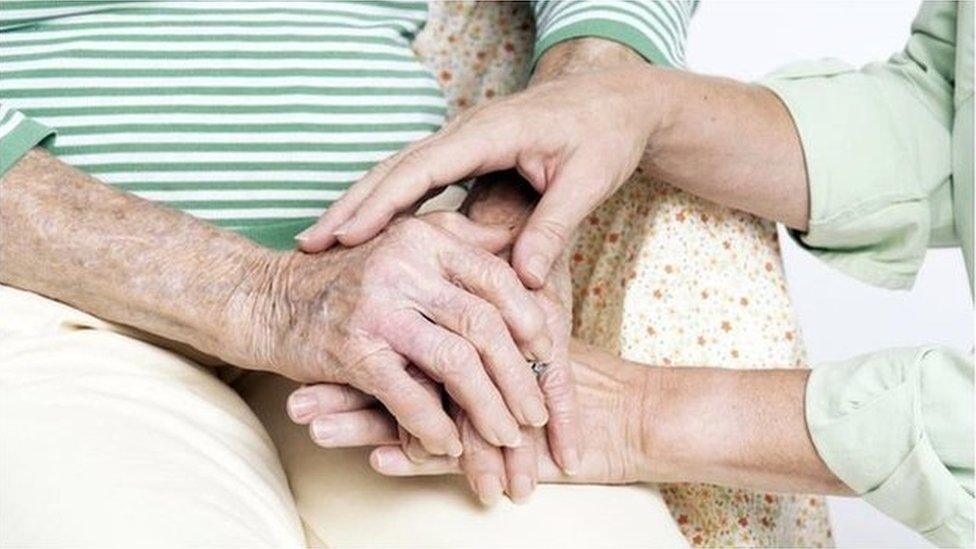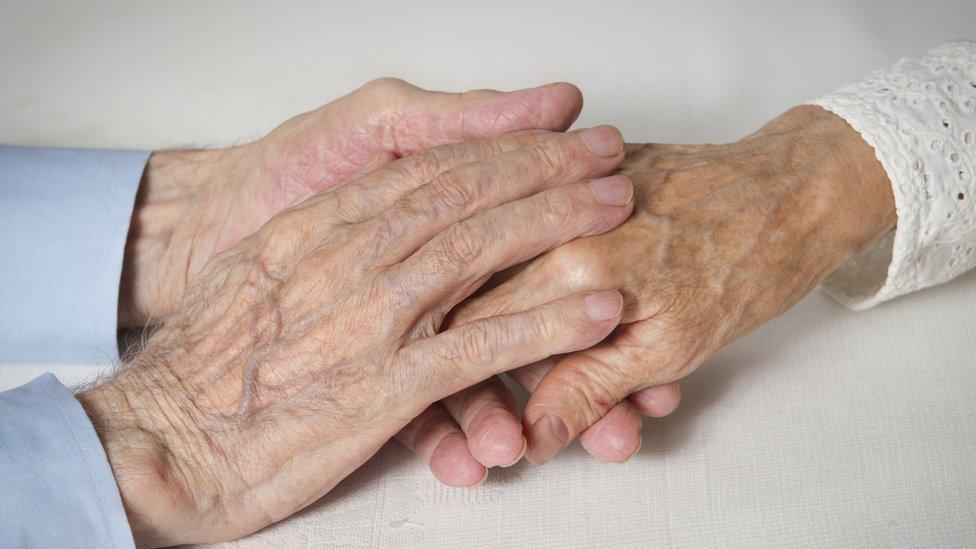More people caring for someone with cancer - survey
- Published

The number of people caring for someone with cancer in the UK has risen to almost 1.5 million, new figures show.
According to one leading charity, this is an increase of almost a third in the past five years.
Family and friends are now spending an average of 17.5 hours a week looking after a loved one who is affected, said Macmillan Cancer Support, external.
One in five of those surveyed care for someone with cancer for more than 35 hours a week.
Amy Jones, 20, has given up college to take care of her dad who has advanced prostate cancer.
The figures come from a YouGov survey of more than 6,000 cancer carers aged 16 and over in the UK.
The estimated number of those carers in 2016 was 1,416,000 compared with 1,080,000 in 2011.
Macmillan is calling on the government to recognise the specific needs of such people in the new carers' strategy for England.
It also wants the government to set out a clear plan of how carers will be able to get help and support.
Fran Woodard, of Macmillan Cancer Support, said there was an urgent need to ensure the right support was in place for people caring for loved ones with cancer.
"One of the reasons carers don't get support is because they don't know it's available. In fact, many don't consider themselves to be carers because they're acting out of kindness and love.
"We simply can't expect carers to keep bearing the brunt so we need to support health and social care professionals to let carers know that there is help available which they're entitled to."
Unpaid care
The Department of Health is consulting on how it can improve support for carers. People have until 30 June to submit their views, external.
Last week, a charity said the number of people in their 80s or older who are relied on as carers had soared in the last seven years.
Age UK said one in seven of the "oldest old" - an estimated 417,000 people in all - now provides some sort of unpaid care to family or friends.
Over half of these clocked up more than 35 hours a week.
- Published18 May 2016

- Published23 September 2015
